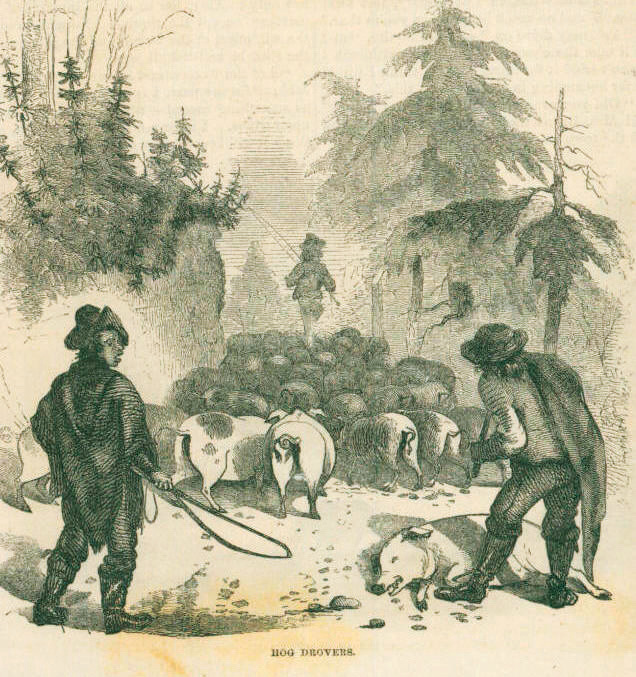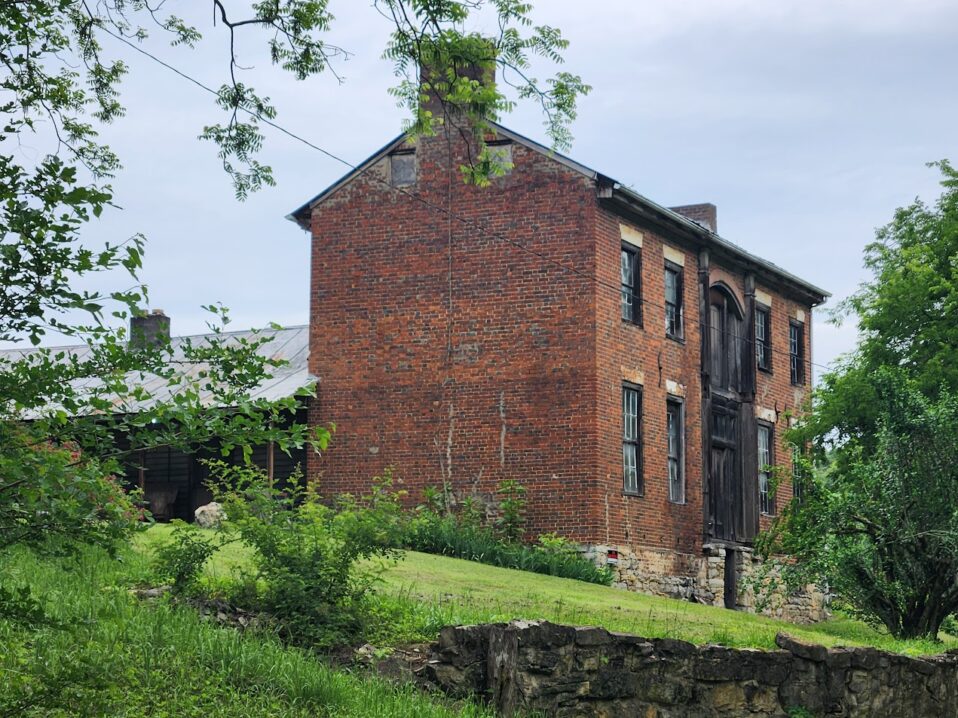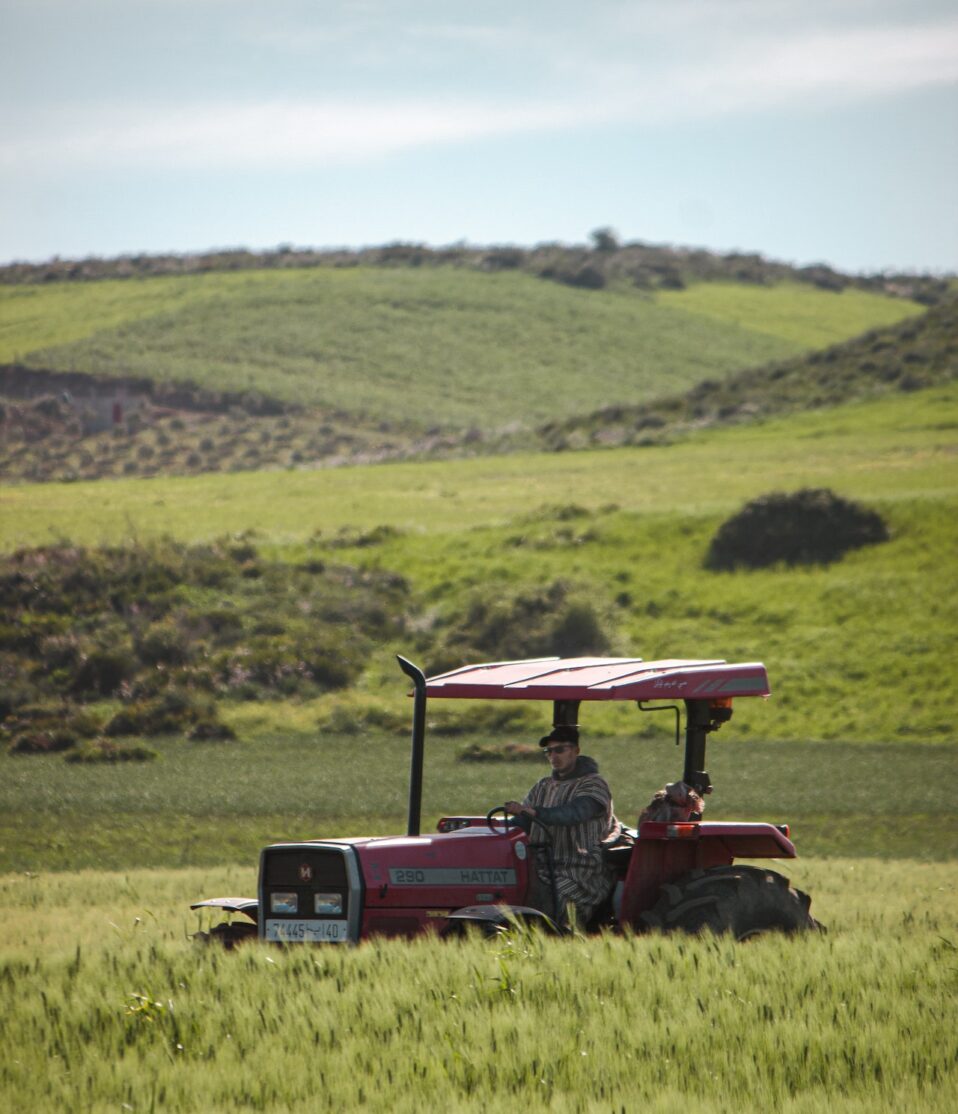Twenty miles east of Gatlinburg is a whole different scene to the Smoky Mountains, one anchored by artsy Cosby, chill Newport and the rafting utopia of Hartford. Cocke County is known as the Adventure Side of the Smokies for good reason. With three rivers, four state national forests and Douglas Lake—one of East Tennessee’s most popular lake recreation areas—this slice of mountainous countryside prides itself on providing Tennessee visitors with ample outdoor opportunities that take your breath away.
For a century, the canning industry fueled Newport’s economy—crates and crates of tomatoes and pork and beans—eventually growing into the country’s largest canning operations. The last owner of the plant, ConAgra, closed it a few years back, and today it’s the once-illicitly distilled moonshine that continues to be a major draw for Newport. A few significant sites of note— the world’s third-oldest river, the French Broad, and Tennessee’s third-oldest town, Parrottsville, steeped in Civil War history and mid-1800’s architecture—also continue to bring visitors in.
So whether you’re visiting Cocke County for cultural heritage or outdoor recreation, here’s how to experience a little of both via a weekend in the Adventure Side of the Smokies.
Day 1 in Newport, Tennessee
Legendary moonshiner Popcorn Sutton once called Newport home, and you’ll see signs of his legacy throughout the area any time of year and especially during the annual summer Popcorn Sutton Jam at the Cocke County Fairgrounds. Today, there are a handful of legal moonshine distilleries and events in the Smokies like the local Adventure Distilling Co., which also offers UTV tours, and the Hard Times Street Rod Moonshine Rod Run at City Park each June.
Go on safari at Briarwood Ranch Safari Park
If you’ve ever wanted to go on a Jurassic Park-style adventure, this drive-through safari in East Tennessee offers just that (only, without the danger or dinosaurs). Drive your own car through the four-mile Briarwood Ranch Safari Park route that’s open seven days a week. The Bybee safari park offers buckets of feed, and the deer, bison, elk, zebras, cows and other wildlife will come right up to your car window and eat out of your hand. Wagon rides through the park are also available by appointment.
For lunch, CJ Papadops in Bybee is open Thursday through Saturday and serves Greek food and weekly specials in a secret garden setting with both indoor and outdoor seating. If you’re a fan of home-grown wine, Goodwater Vineyards isn’t far from Briarwood Ranch Safari Park. The family-owned winery in Mosheim has been in operation since 2013 and is open for tastings by appointment only. Their second tasting room in downtown Gatlinburg is open seven days a week.
Explore Downtown Newport
The Pigeon River bisects Newport’s central core, which is undergoing a resurrection thanks to thriving small businesses like Fruit Jar Alley, owned by Allison Manes and her husband Digger of Discovery’s “Moonshiners” fame. In addition to décor, women’s clothing, and other gift items like dishware and jewelry, Fruit Jar Alley has a room devoted to Back Alley Grainery, a homebrew store. “Moonshiners” often films on the second floor of the historic building, and Popcorn Sutton’s vehicle sits out back behind the building.
Before leaving Newport, have a round of beers at Neighborhood Beer House, which also has a full menu of cocktails, burgers and other snackables like fried cheese sticks, a fries flight and multiple charcuterie boards. The brewery features regular live entertainment and crowd favorites like Musical Bingo Night. Next door is an adjoining coffee shop, Snowbird Mountain Coffee Co. and an axe-throwing establishment facility with six lanes.
Fox & Hounds is Newport’s fine-dining restaurant with a large selection of steaks, seafood and fancy cocktails. Bonus: It’s open seven days a week while many of the restaurants in Newport and Cosby are only open from Thursday through Sunday. Occupying an old gas station, Grease Rack is another quality steakhouse in Newport, with 10 different cuts of beef on the menu in a no-frills setting and domestic beer on tap. The Woodshed is run by a local hospitality teacher who staffs the restaurant with students from her classes and has pork sliders, salads, steaks and seafood. Get your sweet fix with a hand-scooped ice cream cone from the Creamery on Broadway.
Not far from downtown Newport, Grill 73 is the brainchild of a pair of retired Russian acrobats and serves a mix of American and Russian favorites like cabbage rolls, potato pie and pirochke, while Debbie’s Drive-In has a walk-up window for those wanting to grab a burger and shake for the road.
Day 2 in Cosby, Tennessee
Abutting Great Smoky Mountain National Park, Cosby is a mix of makers, like the crafters filling the shelves of Foothills of the Smokies Quilt Shop, and moonshiners. Get your caffeine fix at Our Place Books, Coffees, Unique Gifts—a coffee shop, gift store and book shop all in one—on your way to learn more about what makes this quirky mountain community tick.
Hike out to Hen Wallow Falls
One of the highest waterfalls in the Smoky Mountains, Hen Wallow Falls is a bit of a trek to reach but worth the effort if you have the fortitude. At 4.4 miles round-trip, the moderately difficult hike starts at the trailhead for Gabes Mountain Trail at the Cosby Campground and climbs 900 feet in elevation. Though the 90-foot waterfall is only two feet wide at the top, it fans out as it tumbles down the rocks, separating into two streams at the base that house Smoky Mountain salamanders and occasionally a black bear passing through.
Meet the legendary trolls at 5 Arts Studio
Vivi Arensbak and Marianna Shaffer carry on their father’s legacy with 5 Arts Studio, maker of the famed Smoky Mountains trolls. Born in Denmark and part of a resistance movement during World War II, artist Ken Arensbak helped Jews flee the Nazi occupation to neighboring Sweden by forging travel documents and passports. After moving to North America in the late-1940s, Arensbak settled his family in Ohio and started creating art based on Scandinavian folklore, using woodland trolls as the muse for his handmade art. The family relocated to the Smoky Mountains in 1971 and gradually built an empire as Ken’s wife Neta and their children all started contributing to what eventually became a thriving business.
Today, the sisters and Marianna’s husband Ted Shaffer develop and hand-assemble all trolls with the help of a small team; they are constantly coming out with new designs, from moonshiners to birdwatchers, as well as releasing variations of long-time favorites. They use items found in nature like buckeyes and acorn caps for eyes, noses, and other accessories and estimate they have produced and sold more than a million trolls over the years. 5 Arts Studio in Cosby is open by appointment only, both to visit the museum and to shop for trolls, though the family-run business also sells their creations online, too.
Visit the Carver’s Orchard & Applehouse Restaurant
Surrounded by the Smoky Mountains, Carver’s Orchard is a 40,000-tree family affair that has been growing apples since the 1940’s. Though the apple orchard does not allow visitors to pick their own, they have a produce barn with a robust stock of items made from their 126 varieties of apples, from jams and jellies to apple butter and apple fritters. The orchard also has an on-site candy shop, as well as the Applehouse Restaurant, where you can grab breakfast or lunch.
If you’re in a hurry to your next stop, pick up a selection of apples to go then grab a quick bite down the road from Doc’s 321 Café, which boasts 10 different styles of paninis, street tacos, meat plates and all the traditional sides of Southern BBQ. This Cosby restaurant known for its smoked pies is set in an artful landscape of found objects, vintage signs and curiosities with an old school bus as its centerpiece.
Go on a llama trek through the Smokies
Steve and Johnna Garrett own a dozen llamas and a dream plot of land perched high in Cosby with soaring Smoky Mountain views. Those who want a dose of the outdoors with a llama escort can sign up for their Padgett Mill Trek, which is a guided hour-long, moderate hike that is one of the best kid-friendly activities in the Smokies. Not interested in the hiking part? You can still schedule a farm visit to meet and mingle with the Garretts’ llamas.
Soak up the views from Foothills Parkway
From Cosby, pick up the six-mile stretch of the Foothills Parkway that takes you up winding mountain roads and past several scenic lookouts before ending at I-40. This scenic byway managed by the National Park Service traverses five counties and has been in the works for the better part of a century. Once completed, the Foothills Parkway—starting at Chilhowee Lake in the west with drivable segments through Walland and Wears Valley—will be a continuous 72.1-mile route through some of the country’s most stunning terrain.
Day 3 Cool off on the Pigeon River
Nearly a dozen whitewater rafting companies make their base out of Hartford, 14 miles south of Newport off Interstate-40. Containing Class III and IV rapids that will send pure adrenaline through your veins, this 5.5-mile section of the Upper Pigeon River begins at the North Carolina border at the base of Walters Dam and features controlled releases of water to keep the river rapids flowing. You can also take your own kayak or canoe down the rapids if you dare. The headwaters of the rapids sit close to the Davenport Gap trailhead of the Appalachian Trail, which extends from Northern Georgia all the way to Maine.
Where to stay in Cosby, Tennessee
Creekwalk Inn Bed and Breakfast at Whisperwood Farm is ideal for couples, families and others who want a true escape in the most scenic of Smoky Mountain settings. The expansive grounds comprise the main lodge, a chapel, cabin suites and multi-bed cabins, all hand-hewn log structures with a unique character and vibe. Owner and innkeeper Janice Haynes makes guests feel at home by offering guidance to the area, as well as options for on-site activities like beer-tasting and pie-making.
The in-house chef prepares daily farm-to-table breakfasts, packed picnics, and dinner from locally sourced and seasonal variety that feel like soul-healing foods straight from the arms of Mother Nature. Hot tubs, a sauna, massage therapy, cooking classes, trout fishing and a wealth of local knowledge from the hostess makes this destination world-class for hikers or travelers passing through who seek serenity after the bustle of living in or visiting nearby cities.
Cosby also is home to numerous unique Smoky Mountain vacation rentals like the new two-bedroom Hobbit House at Walnut Acres on six acres of property encased by verdant forest and views of the surrounding Smokies. Larger groups may be interested in renting Wildwood Mountain Cabins, which offer configurations of one to four bedrooms, sleeping as many as 12 people in a single house. In Del Rio, French Broad Outpost Ranch is one of the only dude ranches in Tennessee with horseback riding, cattle drives, square dancing and other family fun.
For travelers looking to camp in the Smokies, Cosby Campground has both tent and RV camping sites, as well as a picnic pavilion, amphitheater and nature walk; it’s also conveniently located near Hen Wallow Falls. Roamstead is one of the best spots for glamping in the Smokies with dozens of yurts for rent, as well as RV hookups, tent sites and cabins.
Stay longer in the Smokies
You can extend your time in the Adventure Side of the Smokies by using Cosby or Newport as your base for day trips to some of East Tennessee’s top attractions like Downtown Gatlinburg, Greeneville, Dolly Parton’s Dollywood in Pigeon Forge or the Bush’s Visitor’s Center—makers of the canned baked beans of the same name—in Chestnut Hill. Want more time on the water? Douglas Lake covers an impressive 30,400 acres with 550 miles of shoreline and water recreation like jet-skiing, kayaking, paddleboarding and birdwatching. To learn more about the Civil War’s impact on East Tennessee, an area predominantly occupied by Union soldiers, start at the trail marker in Parrottsville and follow the Tennessee Civil War Trail sites through the area.
Guest post submitted by Kristen Luna















